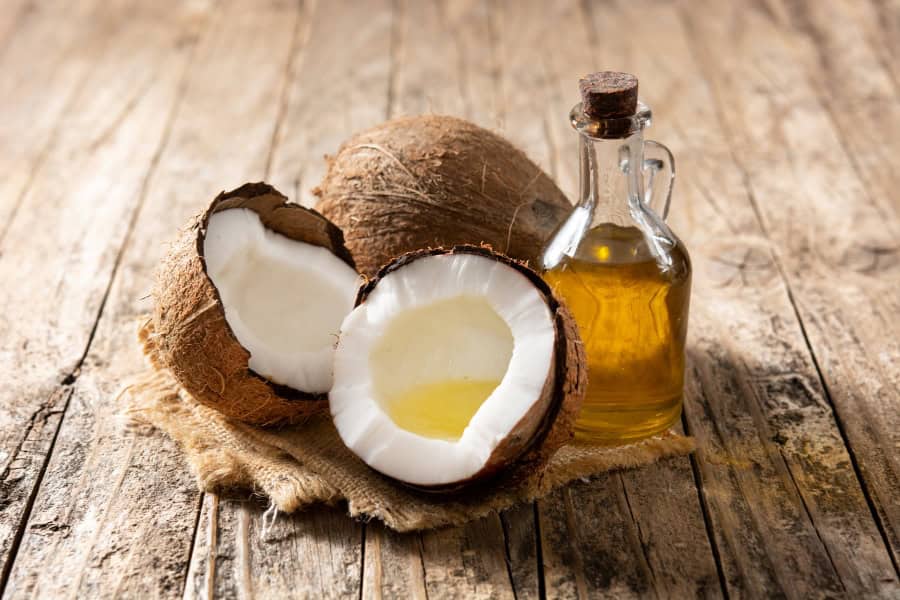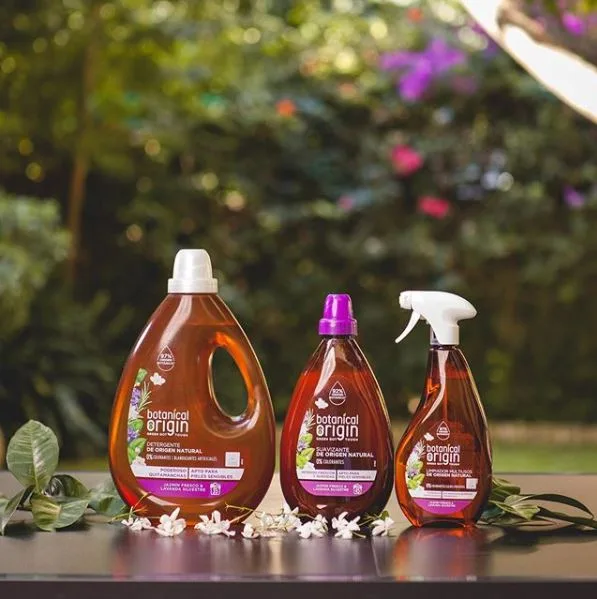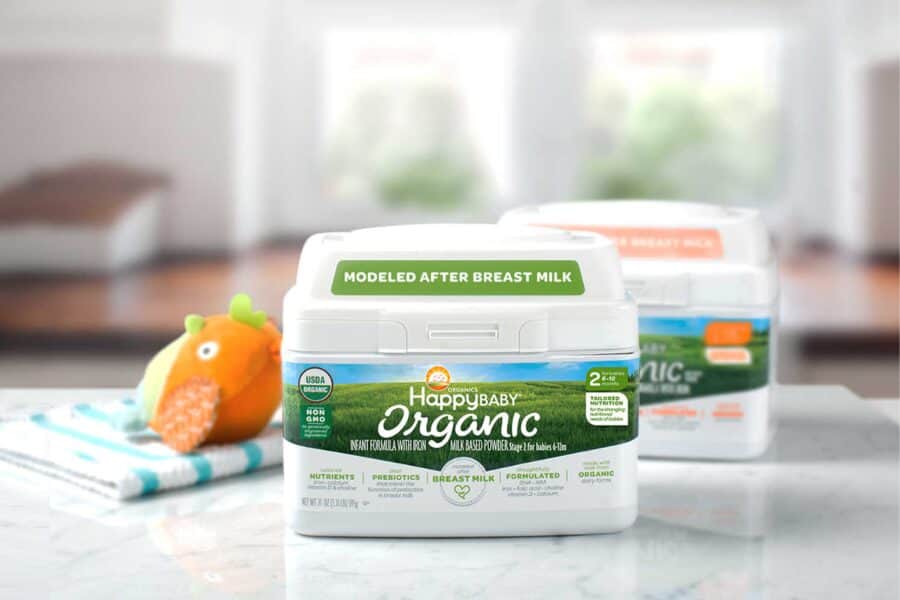Vegetable oil is commonly used in cooking and baking, but it has its drawbacks that leave us searching for healthier and more eco-friendly options. The primary concerns with vegetable oil include its high levels of omega-6 fatty acids, which can contribute to inflammation and various chronic diseases when consumed in excess.
Plus, the production of vegetable oil often involves environmentally damaging practices like deforestation and heavy pesticide use.
That’s why we found the top sustainable healthy alternative to vegetable oil with benefits for both personal health and sustainable agricultural practices.
This article will explore a variety of healthy substitutes for vegetable oil, discussing their health benefits, environmental impact, and suitability for different culinary applications.
Health Benefits of Alternative Oils

Switching to healthier oils is good for you! Alternative oils often contain higher levels of beneficial nutrients such as omega-3 fatty acids, antioxidants, and vitamins, which can improve heart health, reduce inflammation, and support overall well-being.
Additionally, the sustainable healthy alternative to vegetable oil typically has lower levels of harmful trans fats and cholesterol, making it a superior choice for maintaining a balanced diet.
From an environmental perspective, many sustainable healthy alternatives to vegetable oil variants are produced using more sustainable methods. This can include practices such as organic farming, minimal pesticide use, and reduced energy consumption, which help protect ecosystems and reduce carbon footprints.
Now, here are six healthy substitutes for vegetable oil that you can add to your pantry.

Six Must-Have Eco-Friendly and Healthy Cooking Oil
When it comes to eco-friendly and healthy cooking oils, six must-haves stand out for their nutritional benefits and sustainability. Whether you are looking for a substitute for vegetable oil in muffins, seed oil alternatives for frying, or just a sustainable healthy alternative to vegetable oil; there’s a type for all of it.
Here are the best substitutes for cooking oil including options for a great sustainable healthy alternative to vegetable oil!
Olive Oil: A Mediterranean Favorite

Olive oil is renowned for its rich nutritional profile, which includes healthy monounsaturated fats, antioxidants, and vitamins E and K. It is a staple in Mediterranean cuisine and is commonly used in cooking, baking, and salad dressings.
Olive oil is celebrated for its health benefits, such as improving heart health, reducing inflammation, and providing anti-cancer properties.
From a sustainability standpoint, olive oil production can be environmentally friendly, especially when it involves traditional farming methods and organic practices, making it a great sustainable healthy alternative to vegetable oil.
However, it is important to choose certified organic or sustainably farmed olive oil to ensure minimal environmental impact.
Coconut Oil: Versatile and Nutritious

Coconut oil boasts numerous health benefits, including high levels of medium-chain triglycerides (MCTs), which are easily digested and can provide quick energy. It also contains lauric acid, which has antimicrobial properties. Coconut oil is extremely versatile, suitable for frying, baking, and even as a butter substitute.
Environmentally, coconut oil can be a mixed bag. While it has a relatively low carbon footprint, the increased demand has led to concerns about deforestation and habitat loss. Therefore, it is advisable to choose certified organic and fair-trade coconut oil to mitigate these impacts.
Avocado Oil: High-Heat Cooking Champion

Avocado oil is prized for its high smoke point, making it an excellent choice for frying and high-heat cooking. It is rich in monounsaturated fats, which support heart health, and contains vitamins E and K. Avocado oil’s creamy texture also makes it a great addition to dressings and dips, as well as an excellent substitute for vegetable oil in muffins.
Sustainably sourced avocado oil supports eco-friendly practices, as these avocados often use less water and pesticides compared to other crops. Opting for oils produced through sustainable farming methods can further enhance its environmental benefits, making it a great choice for a sustainable healthy alternative to vegetable oil.
Grapeseed Oil: Light and Healthy

Grapeseed oil, derived from the seeds of wine grapes, is light and neutral in flavor. It is high in polyunsaturated fats and vitamin E, which can promote skin health and reduce cholesterol levels. Grapeseed oil is one of the best seed oil alternatives for frying and sautéing, plus it’s suitable for baking and using as a salad dressing base.
The eco-friendliness of grapeseed oil largely depends on its sourcing. Since it is a byproduct of winemaking, it makes use of a part of the grape that would otherwise be discarded, thus reducing waste and promoting sustainability. Now that’s a great sustainable healthy alternative to vegetable oil!
Peanut Oil: Ideal for Frying

Peanut oil is highly valued for its high smoke point and nutty flavor, making it a popular choice as a healthy alternative to vegetable oil for frying and high-heat substitutes for cooking oil. It is rich in monounsaturated fats and vitamin E, which support cardiovascular health. However, those with peanut allergies must avoid it.
While peanut oil can be sustainably produced, it is crucial to consider the agricultural practices involved. Choosing organic peanut oil can help ensure that the farming methods are environmentally friendly, and that way you bring home a sustainable healthy alternative to vegetable oil.
Sunflower Oil: Rich in Vitamin E

Sunflower oil is another versatile option, rich in vitamin E and low in saturated fats. It is a suitable sustainable healthy alternative to vegetable oil for frying, and salad dressings. If you are looking for a sustainable healthy alternative to vegetable oil for baking, then Sunflower is the one. It has negligible flavor and smell which is great for baking. Sunflower oil’s health benefits include promoting skin health and reducing inflammation.
Environmentally, sunflower oil can be produced sustainably, especially when grown organically. To choose these alternative cooking oils, it is important to select oils from sources that prioritize eco-friendly farming practices to minimize environmental impact.
Other Options for a Sustainable Healthy Alternative to Vegetable Oil

Some of the alternative cooking oils that are a healthy addition to your diet are flaxseed oil and hemp oil, which offer unique nutritional benefits, making them excellent substitutes in various recipes.
Flaxseed oil is high in omega-3 fatty acids, while hemp oil provides a balanced ratio of omega-3 and omega-6 fatty acids. These oils are best used in low-heat cooking or as finishing oils to preserve their delicate nutrients. They’re also a great vegetable oil replacement baking. The sustainability of this alternative for oil in cooking oils depends on their sourcing. Organic and locally produced oils are generally more eco-friendly and support sustainable agricultural practices.
Now, with numerous varieties of sustainable healthy alternative to vegetable oil to choose from, it can take a lot of work to select the best cooking oil for your family. We tried to simplify this process by sharing the five key points to look for in cooking oil before buying.
Choosing the Right Oil for Your Cooking Needs
To choose healthy substitutes for vegetable oil for frying, baking, salad dressing, sautéing, etc., consider the following five essential qualities:
Choose Unrefined Oil:
- Why it matters: Unrefined oils are closer to their natural state, retaining more nutrients and flavor.
- How to identify: Look for oils labeled as “unrefined,” “cold-pressed,” or “wood-pressed.” These methods preserve the natural nutrients and oils’ natural flavor.
- Benefits: Unrefined oils have higher levels of beneficial compounds like antioxidants, vitamins, and minerals, which can enhance the nutritional value of your meals.
Look for the Smoke Point:
- Why it matters: The smoke point is the temperature at which an oil starts to break down and smoke. This affects the oil’s safety and performance in cooking.
- How to identify: Check the smoke point of the oil you are considering. For high-heat cooking, choose oils with a high smoke point (e.g., coconut oil, or groundnut oil). For low-heat cooking, choose oils with a lower smoke point (e.g., olive oil).
- Benefits: Using an oil with a suitable smoke point ensures it remains stable and safe during cooking, which can prevent the formation of harmful compounds.
Balanced Fatty Acid Composition:
- Why it matters: Fatty acids in oils can affect cholesterol levels and overall health. A balanced composition ensures the oil provides the best health benefits.
- How to identify: Check the fatty acid composition of the oil. Opt for oils with a balanced mix of mono-unsaturated and poly-unsaturated fatty acids.
- Benefits: A balanced fatty acid composition can help maintain healthy cholesterol levels and support overall well-being.
Free of Additives and Preservatives:
- Why it matters: Additives and preservatives can degrade the quality of the oil and potentially harm health.
- How to identify: Check the ingredient list for any additives or preservatives. Opt for oils with minimal or no additives.
- Benefits: Choosing oils without additives and preservatives ensures you are getting a high-quality product that is less likely to cause adverse health effects.
Select Organically Produced Oils:
- Why it matters: Organic farming methods can result in healthier and more nutritious crops, which translates to better oil quality.
- How to identify: Look for certifications like USDA Organic or European Union Organic.
- Benefits: Organic oils are more likely to have higher levels of beneficial compounds and fewer pesticides, making them a healthier choice for your meals.
By considering these five qualities, you can ensure what to use instead of vegetable oil in cake making, frying, dressing, or other forms of cooking. So, you can buy a healthy vegetable oil that provides maximum health benefits and value for money.
Make Healthier Choices With These Swaps
Switching to a sustainable healthy alternative to vegetable oil is a great first step towards the health of your family and the benefits of your environment. Choose healthier, eco-friendly options, you improve your diet, support sustainable agriculture, and reduce your carbon footprint in one go – isn’t that awesome?
Ready to make the switch to a sustainable healthy alternative to vegetable oil? Explore our detailed guides and product recommendations at Ecowiser, and join our community of conscious consumers dedicated to making eco-friendly choices every day!









